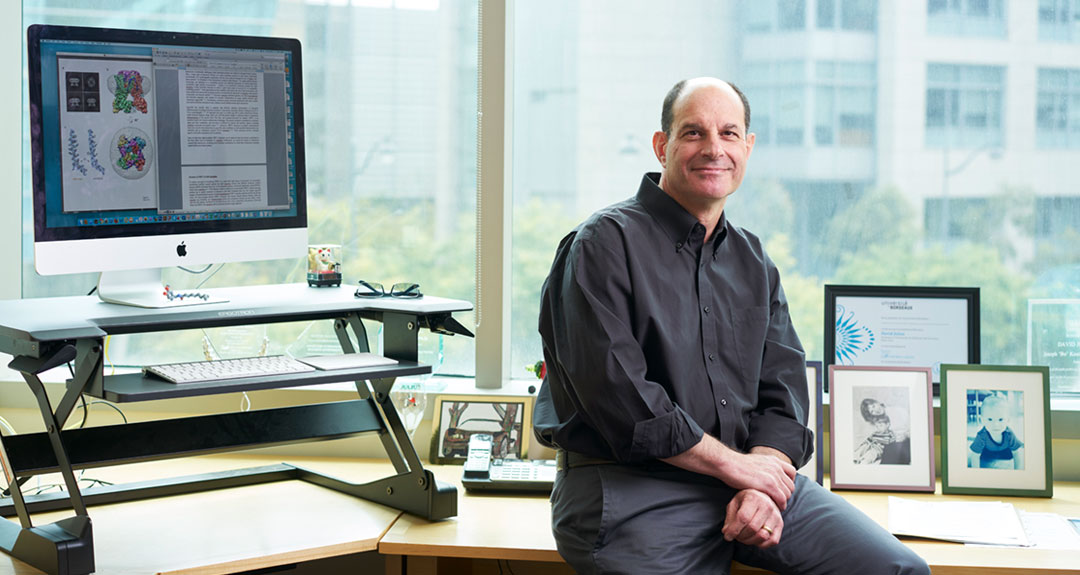
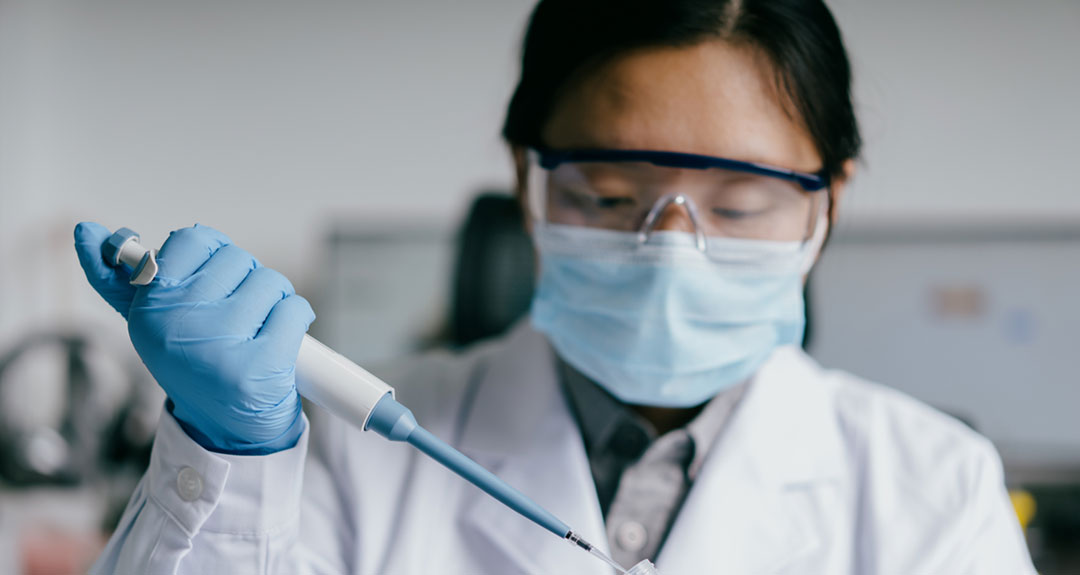
Photo credit: sinology, Getty Images
Biomedical research into Inflammatory Bowel Disease gained new momentum as labs reopened.
Regaining Momentum In Uncertain Times
The COVID-19 pandemic has impeded scientific inquiry and taken a toll on researchers around the world. That includes biomedical research supported by the Kenneth Rainin Foundation to improve the prevention, diagnosis and treatment of Inflammatory Bowel Disease (IBD). In 2021, however, many of our grantees re-energized their work. They reconnected with their teams and built on ideas generated during lab shutdowns. We celebrated exciting milestones and new momentum in their groundbreaking research.
“I am inspired by the scientific community’s dedication and their ability to adapt to ongoing uncertainty while advancing meaningful research.”
—Shelley Trott, Chief Program Officer
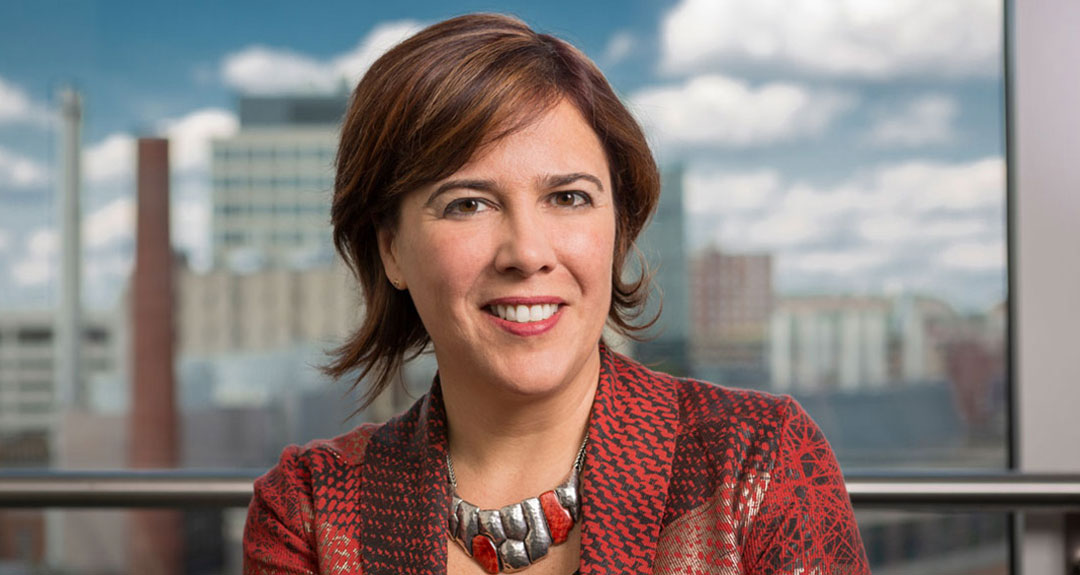
Photo credit: Harold Shapiro
Dr. Carla Rothlin, Yale School of Medicine, shared reflections about the pandemic’s impact and her lab’s efforts to adapt while advancing groundbreaking ideas in Inflammatory Bowel Disease (IBD) research.
Navigating Constraints On Innovation
The pandemic has created ongoing uncertainty for everyone in biomedical research, inflicting a widespread personal and professional toll on researchers. Pre-existing inequities exacerbated these hardships for female as well as Black and Latinx researchers. The impacts have differed depending in part on geographic location and institutional resources. These have been compounded by COVID restrictions and access to vaccines, which vary widely in different parts of the world. Researchers shared how these conditions affected their capacity to innovate and advance their work. Many continued to express concern about their ability to regain the same high level of research as before.
Yet researchers continued working—analyzing data, publishing papers and troubleshooting technical challenges. They created new platforms for connecting and sharing expertise more widely, innovated new strategies in clinical studies and contributed to COVID-19 research and treatment.
To support our grantees, the Rainin Foundation stayed connected and listened carefully to what they needed. We looked for ways we could tailor financial and other supports that were sensitive to their distinct challenges. And we offered flexibility through no-cost extensions and top-up funding with minimal application requirements.
“As funders, it’s imperative for us to continue to listen to our grantee community to understand the best ways to support them. Their students and trainees are especially vulnerable, yet essential to the future of science.”
—Laura Wilson, PhD, Director, Health Strategy & Ventures

Photo courtesy of Tejal Desai
Tejal Desai, PhD, brings valuable expertise and leadership to our Scientific Advisory Board and is an influential voice in science. With her bioengineering co-authors, Dr. Desai published a strong call for racial equity in federal funding in Cell.
Advancing Equity To Advance Science
The Rainin Foundation’s commitment to equity extends across our organization and includes a sustained process of internal learning. Our focus on gender parity in Health grantmaking continued with our 2021 Innovator Awards. Four of the eight research teams that received funding are led by women. Our 2021 Innovations Symposium featured gender parity in the presenting speakers, including academic and industry leaders who identify as women. We remain committed to elevating underrepresented researchers to address persistent gender bias and gaps that affect medical research.
To build more equitable programs and practices, we began collecting grantee demographic data with applications for our 2022 Innovator Awards. Our Health program staff also collaborated with our Scientific Advisory Board to gain their insights and expertise. In September, we convened members to examine how we can contribute to advancing racial and gender equity in biomedical research. There was strong consensus on the overall need to focus earlier in the academic and research pipeline. We explored ways to target younger scientists of color who are aspiring to research positions during their graduate studies.
GRANTEE MILESTONE
Celebrating A 2021 Nobel Laureate
Photo credit: Noah Berger
Dr. David Julius, professor and chair of the Department of Physiology and the Morris Herzstein Chair in Molecular Biology and Medicine at University of California, San Francisco, was awarded the 2021 Nobel Prize for his research into the molecular basis for the sensations of pain and pressure. He received the prize jointly with Ardem Patapoutian, PhD, a molecular biologist at Scripps Research. Dr. Julius’ groundbreaking work has significant implications for people living with IBD.
Improving Lives Through Novel Research
The Rainin Foundation’s Health grantmaking aims to improve the lives of IBD patients and to one day cure the disease. In May, we awarded $1.2 million through our Innovator Awards program, investing in early career and veteran IBD researchers alike. Grantees are pursuing a range of patient-focused ideas with clinical implications from treating pain and inflammation to achieving lasting remission. Some highlights include:
- Isaac Chiu, PhD, Harvard Medical School, and his team are seeking to characterize the role of neurons that mediate pain in IBD, and to determine whether inhibiting or activating these neurons leads to changes in the gut that can treat pain and inflammation.
- Shruti Naik, PhD, and Daniel Rosenblum, PhD, New York University Grossman School of Medicine, are investigating how intestinal stem cell niches change over the course of disease and use this information to achieve lasting remission in IBD.
- Anna Katharina (Katja) Simon, PhD and Fiona Powrie, PhD, University of Oxford, are using their research to target the association of abdominal fat tissue in many Crohn’s disease patients with the promotion of pro-repair mechanisms helping to heal intestinal wounds.
While we encourage synergy across disciplines, we recognize that ongoing uncertainty and logistical challenges continue to hinder collaboration. Research labs are contending with their unique local and institutional conditions. For many labs, the primary focus is on simply regaining momentum.
“The generous support from the Rainin Foundation will enable us to boldly pursue mechanisms underlying inflammation in monogenic IBD that will provide new basic and translational insights directly from patients.”
—Carrie Lucas, PhD, Yale University
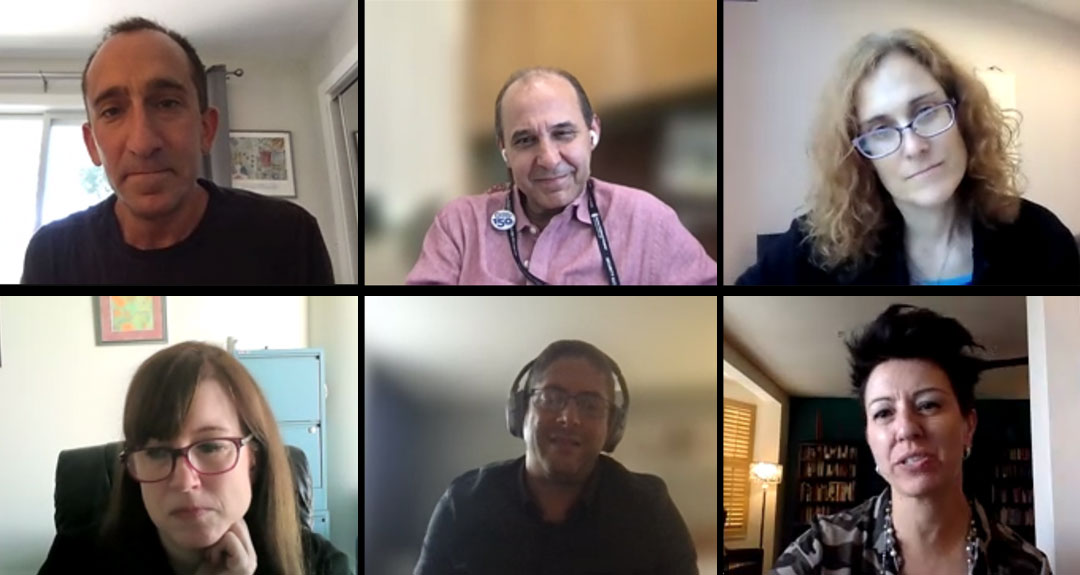
Photo credit: Kenneth Rainin Foundation
Our 2021 Innovations Symposium convened online, allowing more people than ever to participate virtually and hear from experts working across disciplines.
Collaborating To Strengthen The Field
Collaboration is a central tenet of the Rainin Foundation’s values. We believe that working in partnership and with a common purpose are essential to achieving our mission. In 2021, we joined a funding consortium with Foundation for the National Institutes of Health and other industry and academic partners. Our aim is to address the need for standardized biomarkers for measuring mucosal healing in clinical trials for ulcerative colitis. Establishing standardized definitions allows for uniform protocols to reliably measure progress toward that treatment goal.
The Rainin Foundation’s annual Innovations Symposium is our cornerstone platform for sharing ideas and progress about research into IBD. Our 2021 Innovations Symposium convened online and engaged our largest-ever audience. Well over 400 people tuned in to hear from experts across multiple disciplines. More than 60% of attendees were students, post-docs and early career researchers, a cohort that is essential to advancing the field yet often unable to travel to conferences to learn and network. Dozens of industry, government and funding stakeholders also participated. The event showcased research and elevated the voices of people living with IBD. Foundation CEO Jen Rainin, Board member Dash Patterson and researcher Dr. Katie Pollard reflected on their personal experiences with the disease and its impact on their families.
“As a medical school student who was diagnosed with UC [ulcerative colitis] in 2015, this [symposium] was really motivating and interesting…I am excited to see where the future of medicine goes in treating individuals with IBD.”
—Jonathan Derouen, University of Oklahoma Health Sciences Center
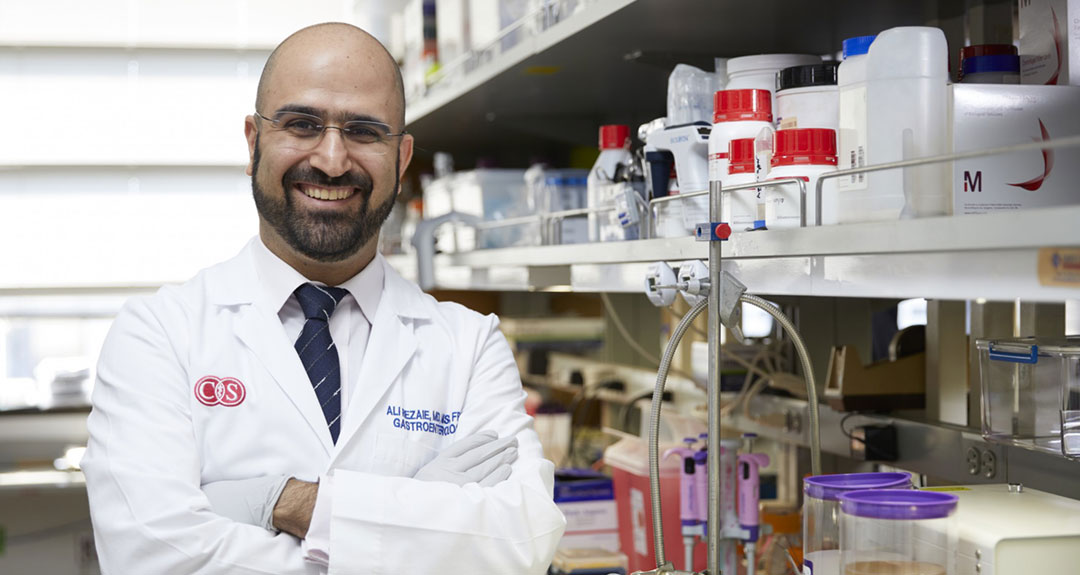
Photo courtesy of Cedars-Sinai
At Cedars-Sinai, Ali Rezaie, MD, is developing a novel technology using UVA light to help resolve inflammation.
Promising Ideas Gain Traction
The Rainin Foundation is not afraid of being the first funder to support researchers with promising but untested ideas. Our grantees achieved important progress on an array of research that advances our understanding of IBD and improves quality of life for those living with the disease.
One of those early investments supported Dr. Ilian Iliev’s investigations into the fungal microbiome’s role in mucosal immunity and inflammation—an area of study that has since gained scientific interest. Dr. Iliev’s latest research, published in Nature Microbiology, revealed that antibody protection against harmful forms of fungi in the gut may be disrupted in some patients with Crohn’s disease.
Our early support also helped Dr. Ali Rezaie at Cedars-Sinai develop novel technology using UVA light to help resolve inflammation. In 2021, we approved new funding to test a refined, miniaturized device in a human trial of patients with ulcerative proctitis. These patients are typically excluded from clinical trials to treat ulcerative colitis. This innovative intervention holds promise for improving the quality of life for people living with IBD.
Other grantee research also advanced. For example:
- Heather Kaplan, MD, MSCE, Cincinnati Children’s Hospital, led a clinical study of pediatric patients with active IBD that showed dietary changes can reduce clinical symptoms and improve inflammatory burden. With more viable treatment options, patients and families can have greater autonomy in managing their disease.
- Carla Rothlin, PhD, Yale School of Medicine, continued to investigate the molecular basis of the fibroblast response to a specific type of cell death called necroptosis, which appears to inhibit the healing action. Understanding the connection between necroptosis and fibroblast response could illuminate therapeutic vulnerabilities in IBD.
- Kevin Whelan, PhD, King’s College, led the first randomized control trial of the effects of a diet low in fermentable carbohydrates in patients with Crohn’s disease. Research encompassed the effect on persistent gut symptoms, the intestinal microbiome and circulating inflammation markers in patients with inactive IBD.
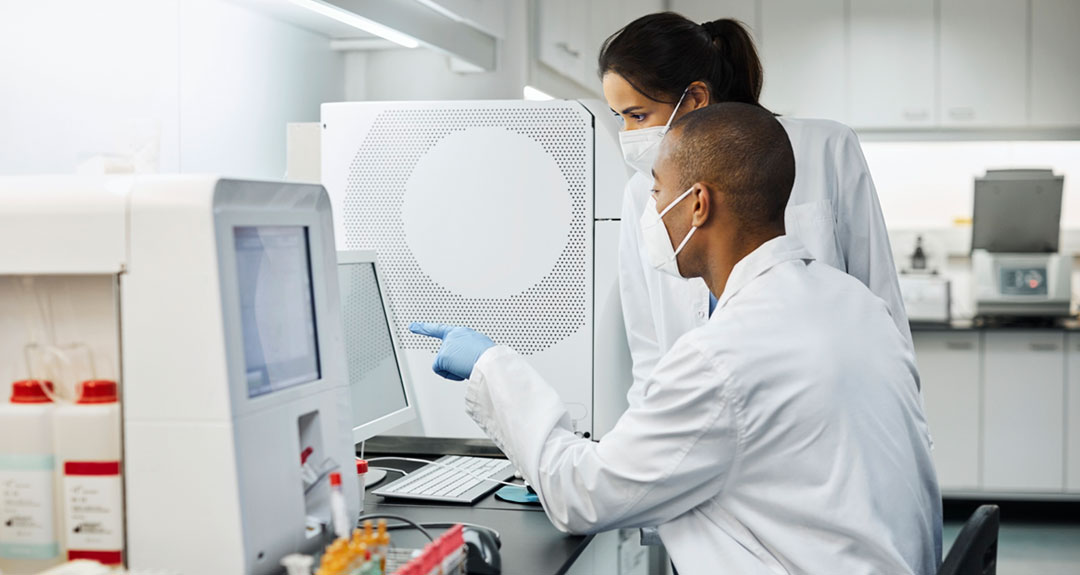
Photo credit: Morsa Images, Getty Images
The Rainin Foundation supports scientists to collaborate across disciplines on innovative research that could improve patients’ lives.
Breaking New Ground In IBD Research:
2021 Grantees
The Rainin Foundation invested nearly $3.5 million in 2021 to support IBD research.
Health grantmaking supports groundbreaking ideas that have the potential to dramatically transform the prediction and prevention of Inflammatory Bowel Disease.
Note: Grantmaking amount includes $.97 million of multi-year grants committed in a prior year. Financials are subject to audit verification.
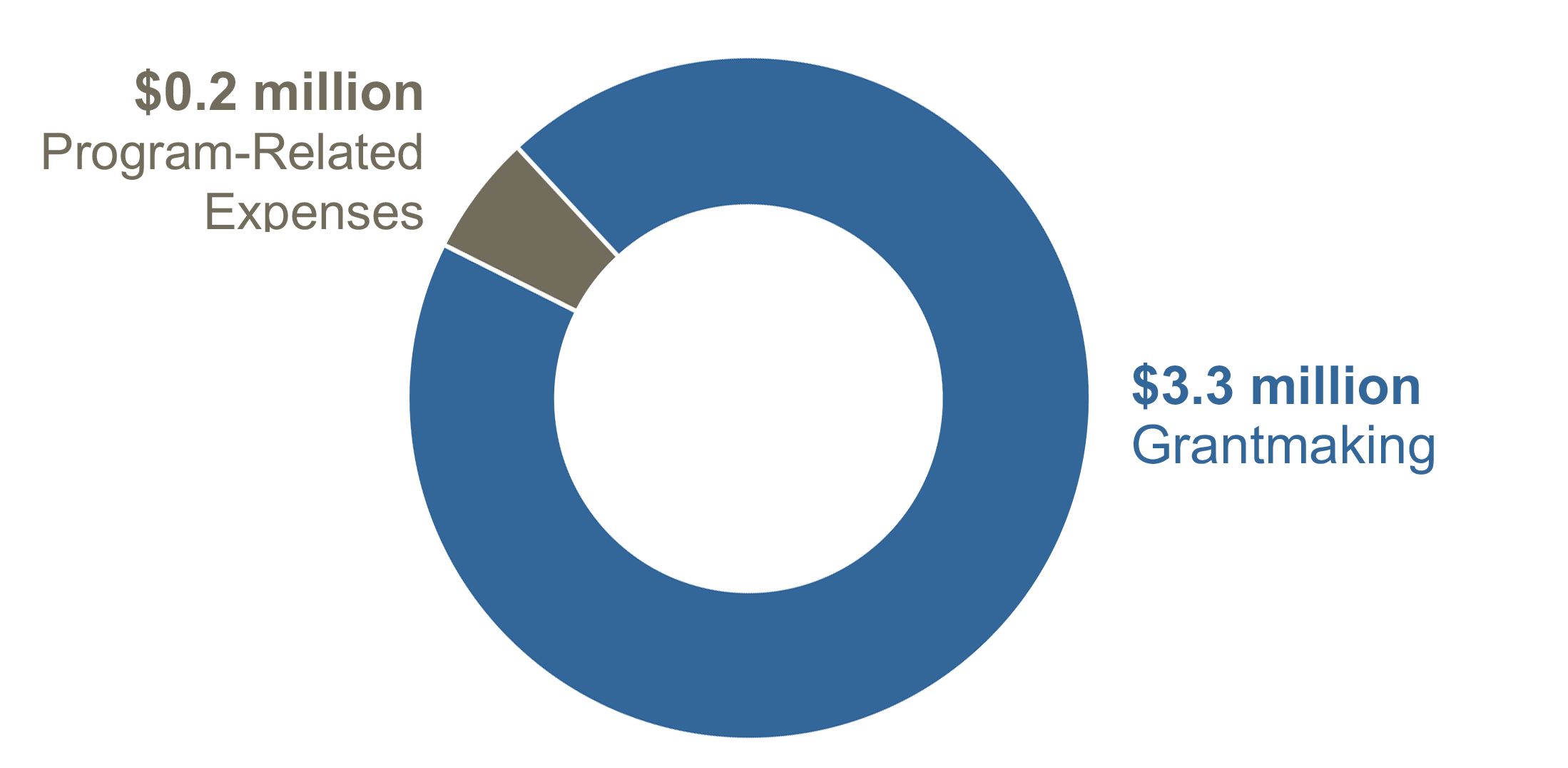
INNOVATOR AWARDS
Grants support an international pool of early-career and seasoned researchers to study untested ideas that could lead to breakthrough discoveries about IBD. Learn more about the 2021 Innovator Award grantees.
Isaac Chiu, PhD, Harvard Medical School
Andrew Goodman, PhD, Yale University
Carrie L. Lucas, PhD, Yale University
Shruti Naik, PhD, and Daniel Rosenblum, PhD, New York University Grossman School of Medicine
Francesca Petralia, PhD, Jean-Frédéric Colombel, MD, and Zeynep Gumus, PhD, Icahn School of Medicine at Mount Sinai
Eran Segal, PhD, Weizmann Institute of Science, and Nitsan Maharshak, PhD, Tel Aviv Sourasky Medical Center
Anna Simon, PhD, and Fiona Powrie, PhD, University of Oxford
SYNERGY AWARDS
Grants support cross-disciplinary teams of researchers who are pursuing collaborative projects aimed at improving the prediction and prevention of IBD. The 2021 Synergy Awards cycle was put on hold. In 2022, we consolidated our Innovator Awards and Synergy Awards into one grant program—the Innovator Awards.
SPECIAL INITIATIVES
This invitation-only grant supports bold ideas that have the potential to lead to scientific breakthroughs for researchers and people living with Inflammatory Bowel Disease (IBD). Learn more about the Special Initiative grantees.
Explore the Foundation’s website to learn more about our Health program and meet our staff and Board members.

